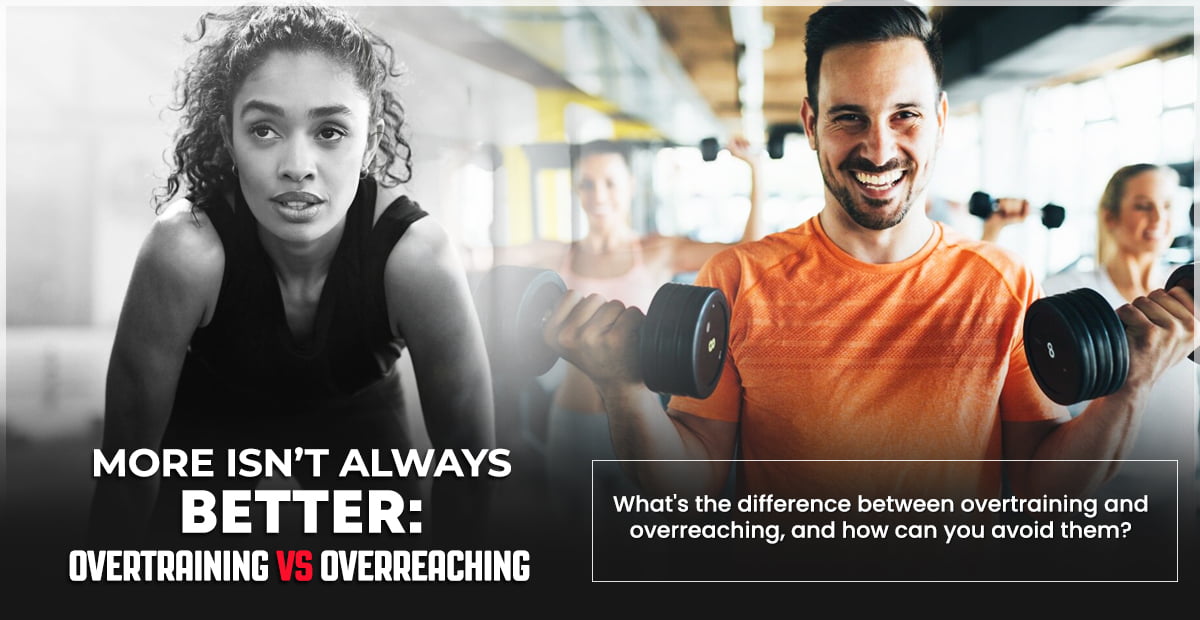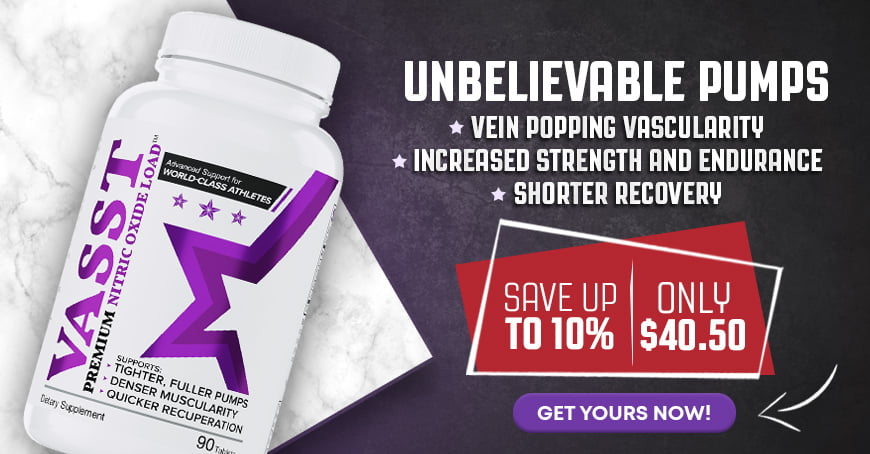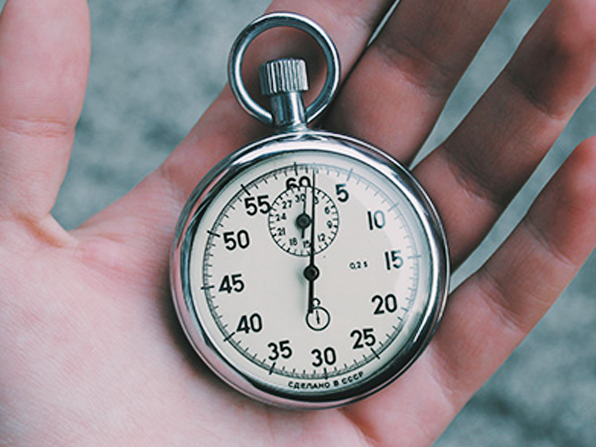
In the pursuit of peak performance, many athletes walk a fine line between hard training and too much training. But the pros have doctors looking after them.
I had that problem several years ago when I was obsessed with building more muscle. I constantly increased my training load, but no one told me about the importance of adequate rest.
You see, the distinction between overreaching and overtraining is subtle.
Both can lead to decreased performance and persistent fatigue. Understanding the difference is key to maintaining your well-being while aiming for improved performance.
As a bodybuilder and personal trainer, I'll share what I've learned about overreaching and overtraining. Then, we'll go over the symptoms and how to avoid the latter.
What’s the Difference Between Overreaching and Overtraining?
Overreaching results from a significant increase in training volume and causes temporarily decreased performance for most people. With pro athletes, this is part of a planned training process known as functional overreaching. They aim to push their body beyond limits to stimulate growth and adaptation, but always with adequate recovery.
Overtraining occurs when the intensity and volume of sessions exceed the body's ability for sufficient recovery. This leads to a state known as overtraining syndrome. As an unplanned outcome, it has a negative impact on long-term training progress and may lead to health issues.
Let me sum it up for you.
Initially, overreaching may cause just a temporary dip in performance. If you keep pushing without a full recovery, you'll become overtrained, which results in a prolonged performance decrement and increased risk of injury and illness.
For example:
Let's say you're a beginner training with the FST-7 program. Instead of doing basic exercises on machines, you try to perform the seven sets with compound moves…not a good idea. The odds are you'll be overreaching and soon become overtrained.
How Do You Know If You Are Overreaching?
You may be overreaching if you notice a temporary decrease in your performance, feel more tired than usual, and experience mood changes. If you're purposely overarching, the symptoms should go away once you adequately recover.
What Are the Symptoms of Overtraining?
If you're overtraining, you'll feel exhausted, have sleeping problems, and lack the strength to maintain your usual training sessions. You could also lose motivation and appetite. If you continue to overtrain, these can progress to psychological symptoms like anxiety and depression.
I've shared stories from this period of my life with guys at the gym in an attempt to protect them. Yet, some of them are so eager to build muscle mass that instead of taking a note, they ask me…
Okay, But Can You Still Build Muscle If You Overtrain?
Not really. When you push your body too hard without giving it enough time to recover, you're more likely to break down muscle than build it up. To see those muscle gains, you need to find the right balance in your workouts and get plenty of rest.
As the famous saying goes: Work Hard, Recover Harder!

How to Avoid Overtraining?
Avoiding overtraining is all about finding that sweet spot between challenging your body and allowing it to recover. Here are some friendly tips to help you stay on track:
Listen to Your Body: Your body is always sending you signals. If you're feeling exhausted day after day, it's time to take a step back and assess your training regimen.
Keep a Training Log: Track your workouts, noting your training load, intensity, and how you feel afterward. This can help you identify patterns and prevent overtraining.
Prioritize Good Rest: Ensure you're getting enough sleep and incorporating 1-3 rest days into your schedule. It is just as important as the workouts themselves for muscle recovery.
Balance Your Training: Adjust your training volume and intensity to avoid nonfunctional overreaching. It's okay to push yourself, but remember that more isn't always better.
Maintain a Diet: Fuel your body with the right nutrients to support recovery and performance. A well-balanced diet will enhance your ability to adequately recover.
Stay Hydrated: Proper hydration is essential for muscle function and recovery. Make sure you're drinking half an ounce to an ounce of water per pound of body weight.
Set Realistic Goals: Avoid setting unrealistic expectations that push you into the red zone. When you have achievable goals, they'll still keep you motivated without risking burnout.
How Bodybuilders Workout Without Getting Overtrained?
There are a few things bodybuilders do specifically to prevent overtraining. They work different muscle groups each day to get enough time for proper recovery. They take longer breaks between exercises and only max out on weights 1-2 times per week.
To ramp up results without pushing past limits, bodybuilders make educated supplement choices. Something I didn't put too much thinking into back in the day and paid the price.
I recently started recommending the AKG-based supplement from BELDT Labs to people I train. It's called VASST, and it works by boosting nitric oxide to speed up blood flow to your muscles.
In other words, it helps you recover faster post-workout, maximizes energy for longer workouts, and reduces muscle fatigue by pushing lactic acid through your body more efficiently.
It's a Cheat Code for Rapid Muscle Growth




